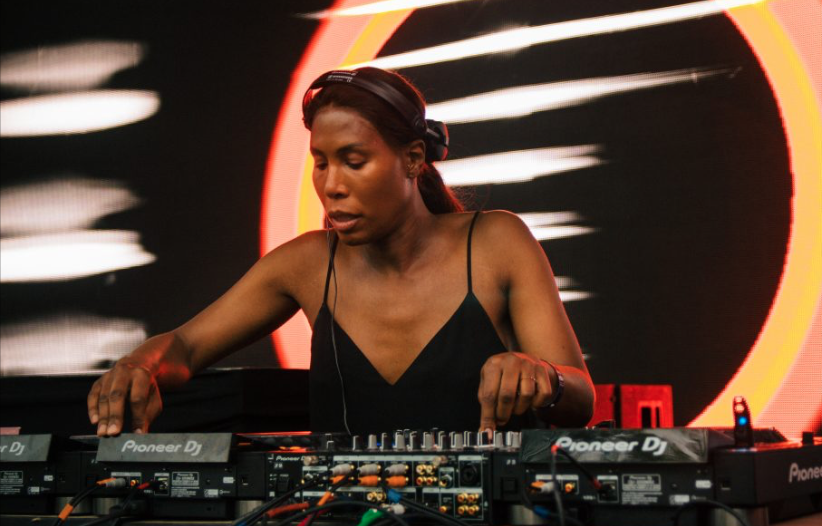I first came across Honey Dijon a couple of years ago in 2016 when she played at Sunfall, a then-new London festival. She gave an outstanding set as it drifted into the night, filled with her sensuous transitions between house and techno, helping to create an ethereal but heavy vibe.
Her inspired set encouraged me to seek her out, delving deeper into her history to find out what inspired her to become a DJ. Honey Dijon is known for her defiance against being defined by one genre; she is associated with cross-genre sets mostly within techno and house. Born and raised in Chicago, Honey grew up listening to her parents’ soul and R&B records at home and spent her time collecting records, rummaging through record stores bins and obsessively reading magazines from local book shops. Here, she was exposed to the underground scene of Chicago and the corresponding Detroit techno scene. And through this, she was introduced to the house legend Derrick Carter, who later became her mentor and life-long friend.
Honey went on to relocate to New York City, where she was introduced to Maxi Records, a dance record label, and Danny Tenaglia. To I’m A House Gangster she comments that “Danny heavily influenced my sound as a DJ…the drama of his delivery and risk taking always informed me of how I wanted to present music. Of course, Derrick and Chicago house were also very influential in my development as an artist, so it’s this combination of Chicago and New York that has helped me develop my signature sound.” In New York she saw a clear separation of sounds across the different clubs, in comparison to Chicago where in one place and in one night tracks shifted between diverse genres. Honey didn’t like what she heard so started playing cross-genre sets herself. With her integrity and deep passion, she began to mix her roots of the Windy City and the New York house scene with what was happening at the time. In the same interview she further comments “since there has been a resurgence of House in Europe, I felt it was the perfect time to pull out a few forgotten classics.” This is seen in her more recent sets and authentic mixes: additional contemporary European influences.
Honey has not only taken the disco, house and techno scene by storm but was also the DJ behind the soundtrack of the famous Supreme x Louis Vuitton Men’s Fashion Week 2017 and has collaborated closely with Kim Jones, the former Menswear designer of Louis Vuitton for the past 7 years on his different presentations. For this specific show, Honey took inspiration directly from Sound Factory Classics, the renowned New York club from the 80s and 90s. In an interview with HighSnobiety she discusses her relationship with Kim Jones: “Kim is an avid collector of culture and we share a look of the same interests and thus a deep friendship was born.”
Honey is also an active speaker on issues surrounding gender in club culture. In her Channel 4 interview on Trans-Visibility, she commented on how DJ culture is dominated by white, heterosexual males and how her pride of being black, a woman and transgender is a stark contrast against the bleak backdrop of statistics indicating how rare it is to find this, even in the eclectic industry she is in. She believes in strong trans-visibility and “wants to be able to see that there is a possibility for you…that you can do something. You are able to be seen, you matter and you should value that you can contribute to something.” Honey believes we are only at “the tipping point of gender and sexual orientation” where people can no longer be placed into boxes but there are 7 billion different varieties of human beings. Honey’s high-profile rise to success is important, especially in helping to highlight how difficult it can be for trans people to find their place in the world. From once being a show-girl herself, with her own night called A Taste of Honey, to becoming an illustrious DJ with a magnetic energy, Honey believes “if I’d been born a cis-gendered, heteronormative girl I probably wouldn’t have had access to the spaces I did and the culture that I did” (i-D Magazine).
Caris Dollard
(Main image: Scene Noise)

